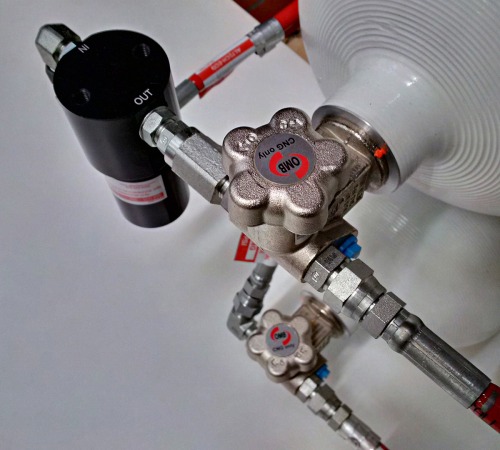How can adsorption technology be used in vehicles?
Thermochemical energy storage is a way of providing energy in a very high energy density for a wide variety of sectors. In order to optimise thermal management and examine changes in the mixing ratios during the charging cycles, the use of new storage technology is being investigated in the project "Adsorption storage for gases and gas mixtures".
As a result of the energy transition, there is a short-term need to store gas mixtures, such as methane or biogas enriched with green hydrogen. In practice, adsorption storage systems are mostly used to store thermochemical energy. Adsorption means that gas molecules attach to the surface of a solid. In doing so, they lose kinetic energy, which is released into the environment as heat.
At present, gases are strongly compressed and stored in thick-walled high-pressure containers. Alternatively, they can be obtained by adsorption on porous media, e.g. activated charcoal. However, the pressure required for this is significantly lower. The lower pressure saves energy during compression and resources with thinner-walled containers. This technology is particularly interesting for small compact tanks such as those used in the transport sector.
In the research project "Adsorption storage for gases and gas mixtures", the working group of Prof. Georg Klepp is investigating the storage of gases and gas mixtures in adsorbents and the possibilities of suitable technical implementation in gas tanks. These findings are intended to answer the question of the extent to which adsorption storage can be used for the green gaseous fuels of the future.
You can find more on the topic on the project page.
You can send any questions directly to:






























































